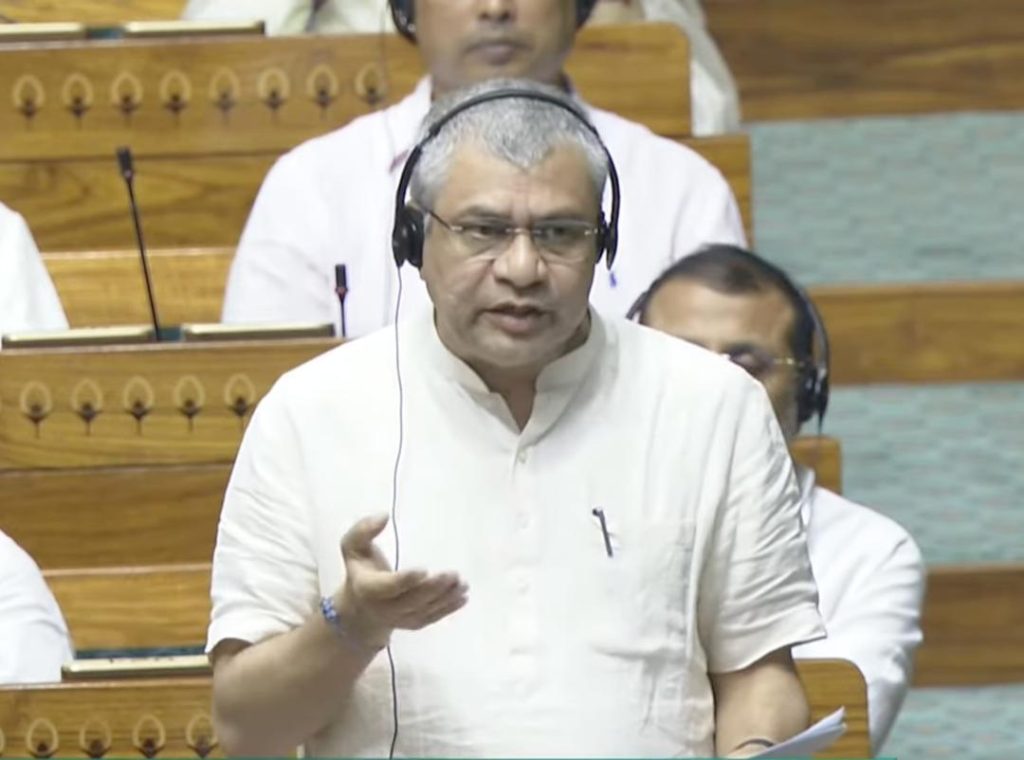
Between our revenue & middle-class families, PM chose families: Vaishnaw on Gaming Bill
On Wednesday, the Promotion and Regulation of Online Gaming Bill 2025 was passed in the Lok Sabha, a move that has been met with both criticism and support from various quarters. Union Minister Ashwini Vaishnaw, while introducing the bill, made a noteworthy statement that has sparked debate on social media and among political circles. He said, “When we have to make a choice between revenue and middle-class families, the Prime Minister (Narendra Modi) always chooses the families.”
Vaishnaw’s statement came in the context of the bill, which proposes to regulate online gaming and prohibit real-money and gambling games. The minister, while supporting the bill, claimed that its main aim is to “save the society from bad elements.” He also highlighted the potential risks and pitfalls of online gaming, including addiction and financial losses.
The bill, which has been passed in the Lok Sabha, will now be sent to the Rajya Sabha for further discussion and possible amendments. The government has proposed to set up a regulatory body to oversee online gaming and ensure that it is done in a responsible and transparent manner.
Vaishnaw’s remarks on the Prime Minister choosing middle-class families over revenue have been widely shared and debated on social media. While some have hailed the move as a progressive step towards protecting the vulnerable sections of society, others have criticized it as a populist measure that may have long-term consequences for the economy.
In recent years, there has been a growing concern about the impact of online gaming on young people, particularly in the middle and lower-middle-class demographics. Studies have shown that young people from these backgrounds are more likely to get hooked onto online gaming due to its affordability and accessibility, leading to addiction and financial problems for their families.
The government, in its move to regulate online gaming, is likely responding to these concerns and attempting to protect the vulnerable sections of society. By prohibiting real-money and gambling games, the government aims to prevent young people from falling prey to online gambling and financial exploitation.
However, critics have argued that the bill may have unintended consequences, including stifling innovation and entrepreneurship in the online gaming industry. Many online gaming companies, which are already facing stiff competition from global players, may struggle to survive under the new regulations. This could lead to job losses and economic instability in the long run.
Furthermore, some have raised concerns about the potential for government overreach and censorship, given the broad powers that the bill grants to the regulatory body. There are fears that the government may use these powers to arbitrarily block or suspend online gaming platforms, leading to a stifling of free speech and innovation.
In conclusion, the Promotion and Regulation of Online Gaming Bill 2025 is a complex and controversial issue that has far-reaching implications for the online gaming industry and the economy as a whole. While the government’s intention to protect the vulnerable sections of society is admirable, it is crucial to balance this goal with the need for innovation, entrepreneurship, and economic growth.
As the bill moves forward, it will be crucial for the government to engage in an open and transparent discussion with stakeholders, including online gaming companies, civil society organizations, and the general public. Only by doing so can we ensure that the bill meets its intended goals without causing unintended consequences.
Source:
https://youtu.be/qOIqYpwYOi8






